Lemaitre Damage model implementation with VUMAT Abaqus
€ 250.0
The Lemaitre damage model is now widely used to deal with coupled damage analyses for
various mechanical applications.
In this package, Firstly, we try to introduce the Lemaitre damage model, including damage mechanics and formulation of the Lemaitre damage model. Then, writing the Lemaitre subroutine is reached step by step. To do this job, the flowchart of the subroutine, Writing the subroutine line by line, implementation of the subroutine in one element and verification is done. In the last chapter, we implement this subroutine in a complex problem, the upsetting process.
| Expert | |
|---|---|
| Package Content |
.inps,video files, Fortran files (if available), Flowchart file (if available), Python files (if available), Pdf files (if available) |
| Tutorial video duration |
58 minutes |
| language |
English |
| Level | |
| Package Type | |
| Software version |
Applicable to all versions |
| Subtitle |
English |
Frequently Bought Together
Implementation of Lemaitre Damage model with VUMAT subroutine
In this training package, as it is clear in its syllabus, the concept of damage is first explained using the literature reviews. This model is now widely used to deal with coupled damage analyses for various mechanical applications. The Lemaitre model is the damage model that occurs simultaneously with plasticization. And then, Coupled yield equation with the damage equation is presented. Abaqus Lemaitre damage training package is available for solid mechanics students on the CAEassistant shop.
In this package, Firstly, we try to introduce the Lemaitre damage model, including damage mechanics and formulation of the model. Then, writing the Lemaitre subroutine is reached step by step. To do this job, the flowchart of the subroutine, Writing the subroutine line by line, implementation of the subroutine in one element and verification is done. In the last chapter, we implement this subroutine in a complex problem and an upsetting process.
It should be noted that in this damage model, the operator split method is used to solve the equations, and after these equations are solved, the elastic and plastic deformation and their laws are introduced one by one. And it will be explained how to use it in subroutine writing with the help of this theory.
In the next part, the VUMAT subroutine flowchart and its needed inputs and outputs are presented. It should be noted that there are a series of state variables in this subroutine, which can be used to check the outputs given by the subroutine, which include the equivalent plastic strain, the damage parameter, and also the element deletion by another state variable is examined.
Notice: if you are not completely familiar with writing VUMAT subroutines, you should get the VUMAT introduction training package, or if you need more professional information, get the advanced UMAT & VUAMT package version from the website. It should be noted that in this training package, it is necessary to use the Lemaitre VUMAT subroutine due to the hardening topic; you should use VUHARD, too; the VUHARD package is also available in the training packages.
The “Implementation of Lemaitre Damage model with VUMAT subroutine” package is used for shell elements. The equation is based on Finite element simulation of the punchless piercing process with Lemaitre damage model article. If you want to get more information about the Lemaitre damage modeling package, please watch the Demo video.
- What do we learn from this package?
- Teaching plan and Prerequisites and Next steps
- Package specification
You can watch demo here.
- What is damage mechanics ?
- What is the formulation of Lemaitre damage model?
- Flowchart of the subroutine
- Writing the subroutine step by step
- Implementation of the subroutine in one element
- Verification
- Problem description
- Simulation step-by-step
- Discussion about the results
What is the Lemaitre damage model?
This model is a model whose hardening is isotropic and rate-dependent. Also, the yield is based on the von Mises criterion, which is combined with the Lemaitre damage model.
Is the Lemaitre damage model very different from the ductile damage models? And what is the difference between them?
Yes, this model is different from the normal damage model that exists in ABAQUS and other software. In the Lemaitre damage model, yielding and plasticization occur simultaneously with damage, but in the normal models that exist, the damaged area and the plasticity area are two separate areas.
Read more: Abaqus Ductile Damage
We have different types of loadings and analyses on different structures and components in the package below; such as composite joints in beams and steel–concrete, steel-concrete composite column analysis in different loading types, Failure analysis of beam-column connection with bolt, Reduce beam section-column with a stiffener simulation in cyclic loading. There are more than that! just click on the package below.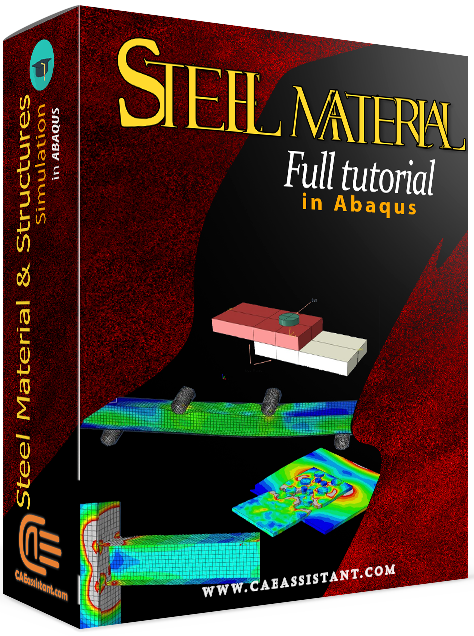 |
All the package includes Quality assurance of training packages. According to this guarantee, you will be given another package if you are not satisfied with the training, or your money is returned. Get more information in terms and conditions of the CAE Assistant.
All packages include lifelong support, 24/7 support, and updates will always be sent to you when the package is updated with a one-time purchase. Get more information in terms and conditions of the CAE Assistant.
Notice: If you have any question or problem you can contact us.
Ways to contact us: WhatsApp/Online Support/[email protected]/ contact form.
Projects: Need help with your project? You can get free consultation from us here.
- Online payment: with MasterCard, VisaCard and etc.
- Offline payment: In this payment method, you should pay via PayPal and send your payment receipt as an attached file in the offline payment form.
- via download link After purchase, a download link will be sent to you a zip file included training videos, documents and software files.
- Send us your machine ID
To access tutorial video run the .exe file on your personal pc and send the generated code to [email protected] and wait for your personal code, which is usable only for that pc, up to 24 hours from CAE Assistant support.
Here you can see the purchase process of packages: Track Order
17 reviews for Lemaitre Damage model implementation with VUMAT Abaqus
Clear filtersYou must be logged in to post a review.
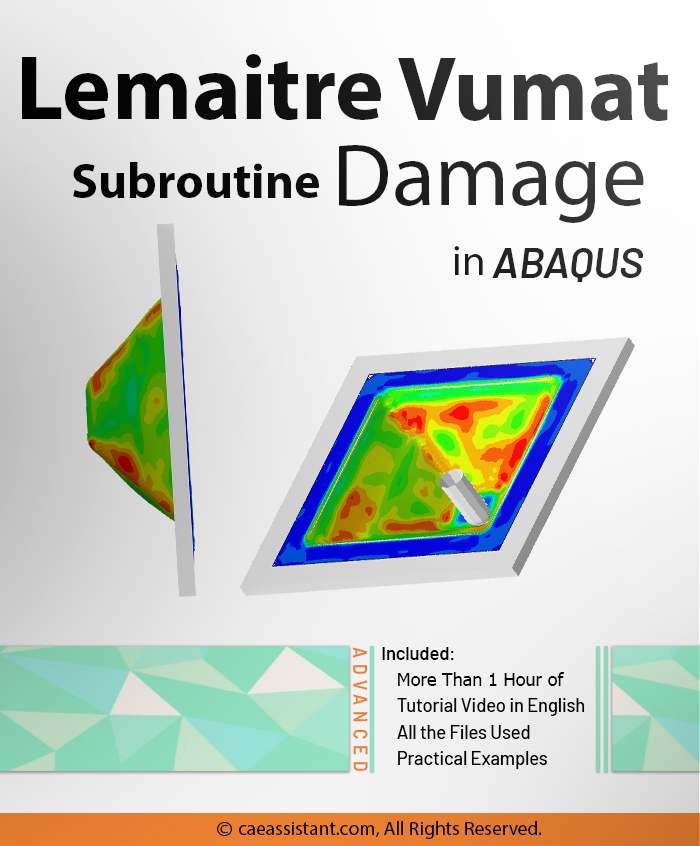
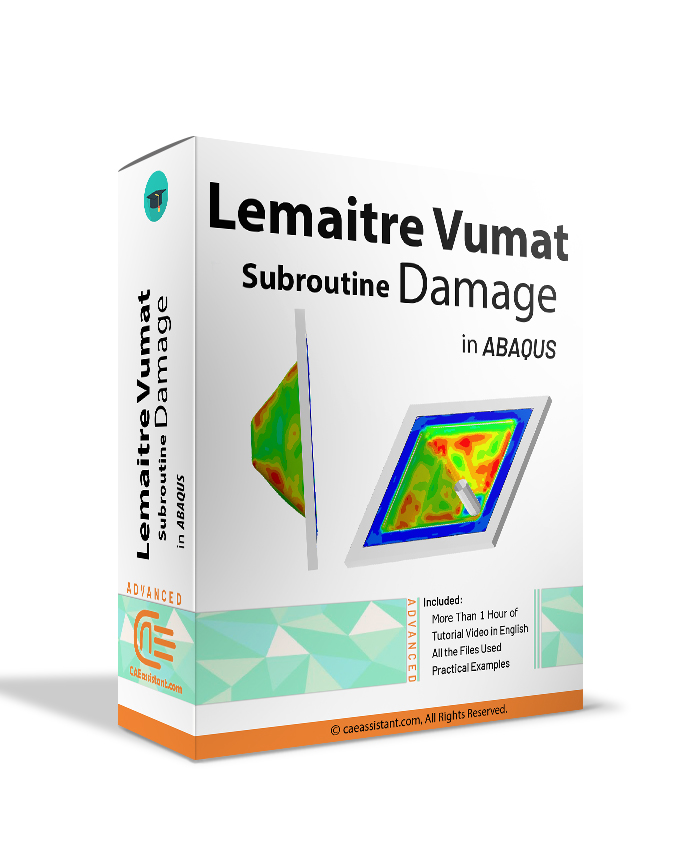
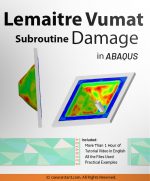
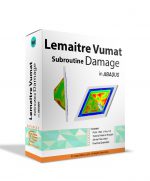
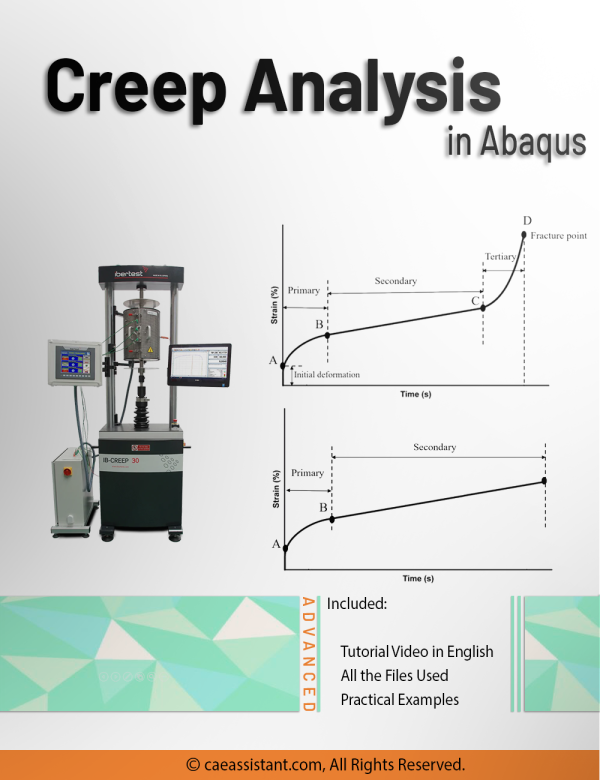
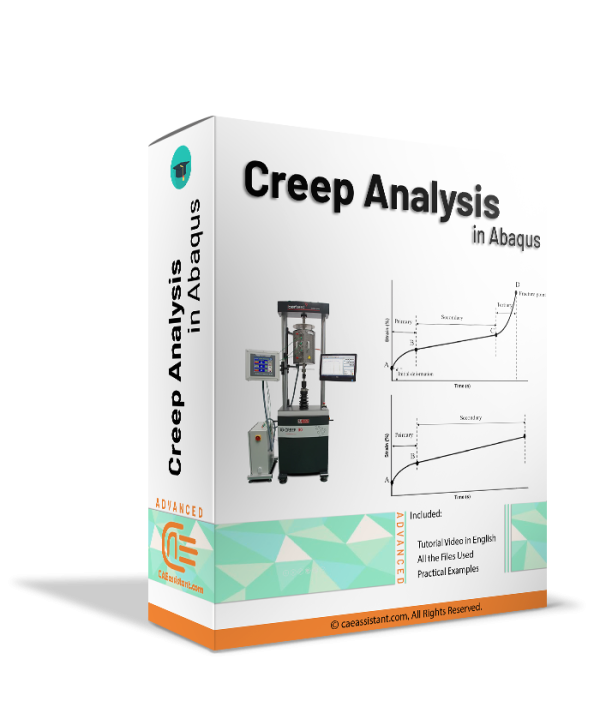
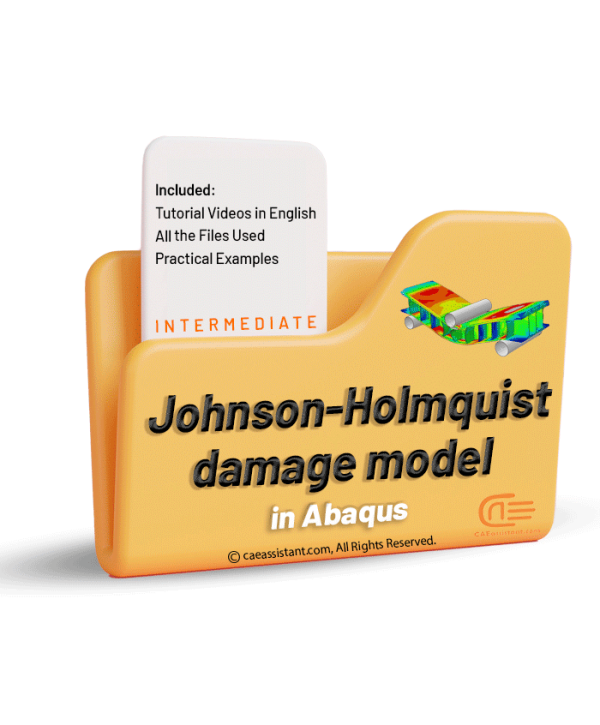
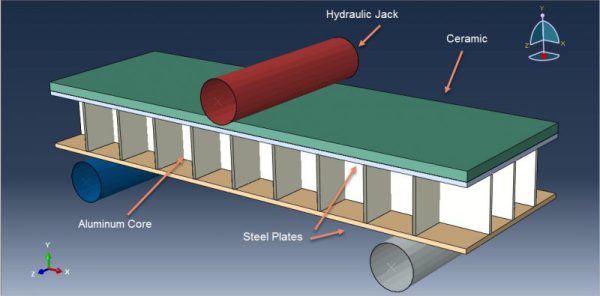
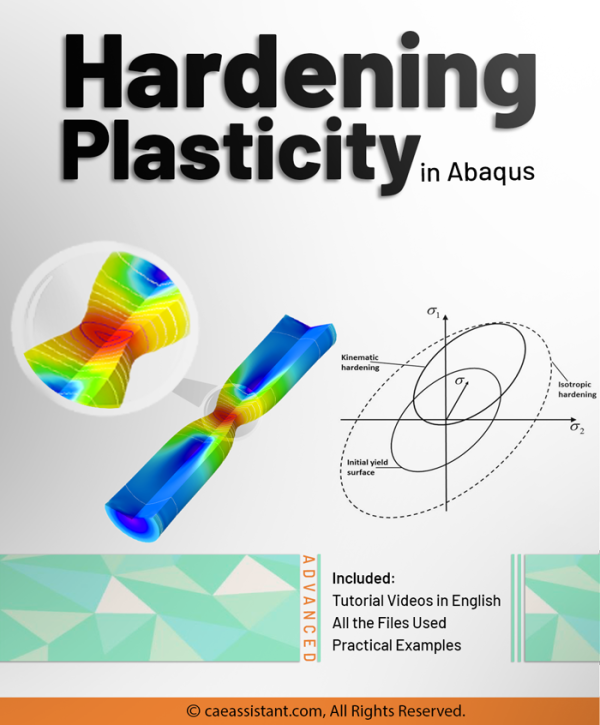
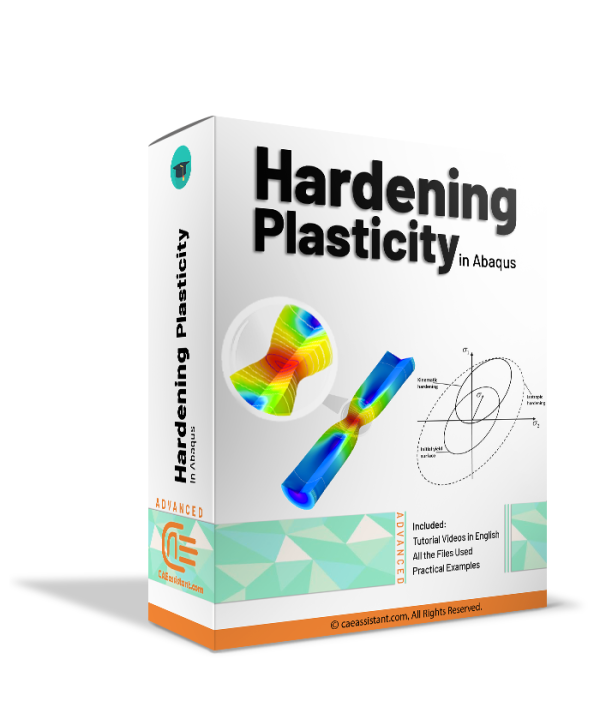
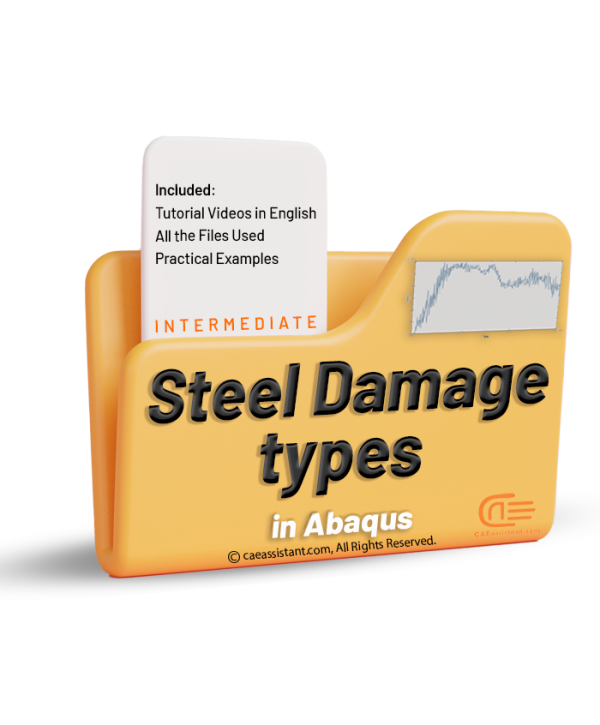
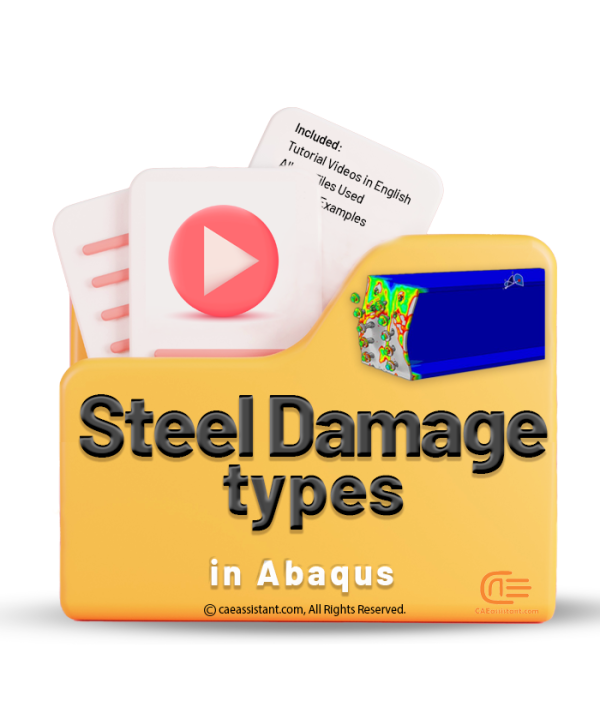
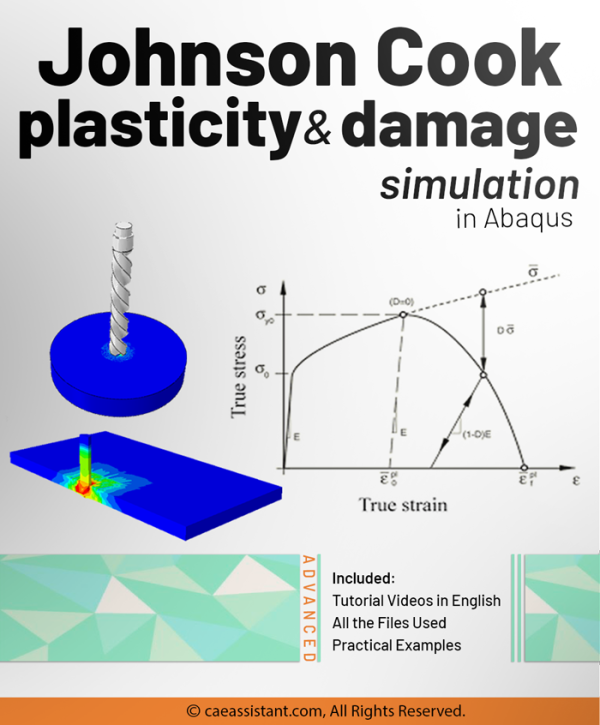
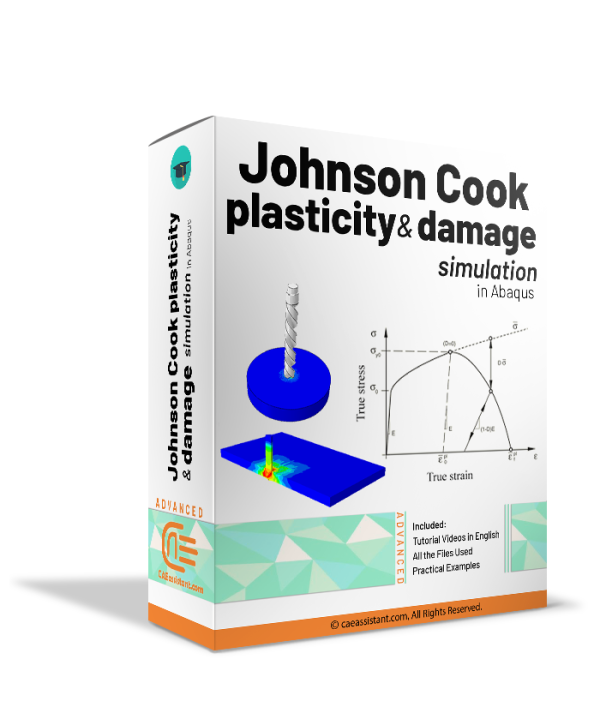
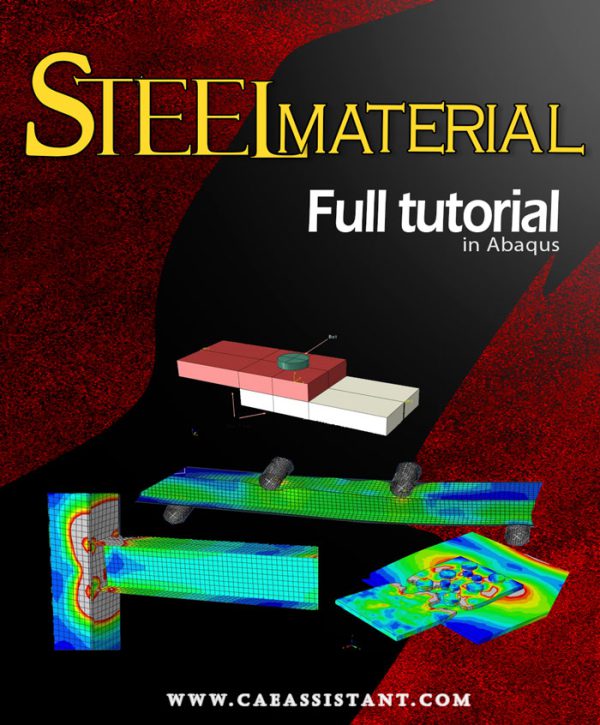
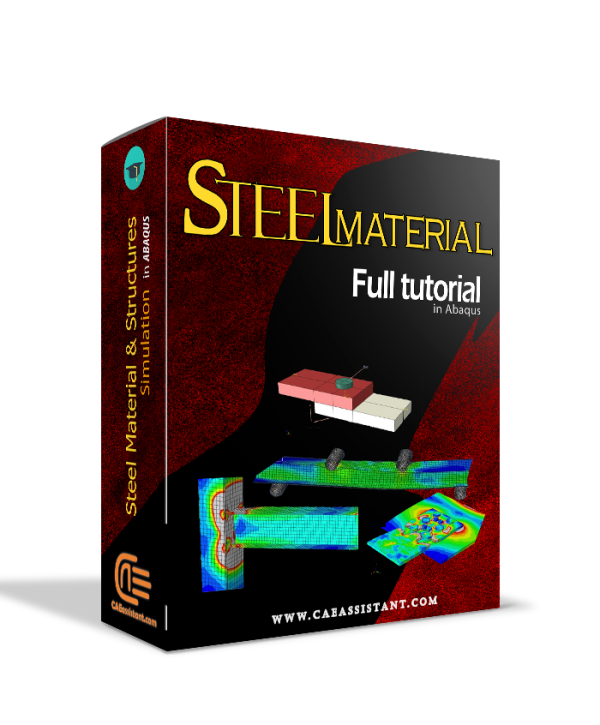
Temba –
Your package performed excellently in our projects, and we were able to achieve desirable results. Overall, using this package was a positive experience, and our simulations showed significant improvement. One of the benefits was the accuracy and reliability of the results provided. My question is whether there are regular updates for this package, and how can we stay informed about these updates?
Kofi –
The Lemaître Damage Model package we purchased greatly helped us improve our damage simulations and resolve issues with damage modeling. The documentation and guides provided were very useful and made using the VUMAT subroutine easy.
Jelani –
The Lemaître Damage Model implementation package effectively met our needs, and we achieved more accurate results. Using this package was straightforward and quick, and the accompanying documentation was well-written. A strong point of this package was its ability to handle various types of damage. My question is whether there is an option to request specific features for our projects?
mike –
It was grate. I appreciate both your contribution to this package and the efforts of your coworkers to prepare it. I have some questions about the VUMAT subroutine that I think I should learn more about it. What package can I get to learn more about this subroutine’s parameters and how they are used in it, and how it works?
thanks for your help
brian –
I wanted to make changes in the Lemaitre model and use this model for my project you could tell me how I can get your help for my project?
scott –
Is there an article related to the Lemaitre model available on your site so that I can have information about this model very clearly and clearly about its equations and how to obtain them?